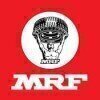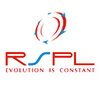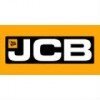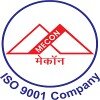Electrical Engineer
1000+ Electrical Engineer Interview Questions and Answers

Asked in Tesla Motors

Q. You are standing on the surface of the earth. You walk one mile south, one mile west, and one mile north. You end up exactly where you started. Where are you?
You are standing at the North Pole.
Walking one mile south takes you one mile away from the North Pole.
Walking one mile west takes you in a circle around the North Pole.
Walking one mile north brings you back to the North Pole, where you started.

Asked in Shapoorji Pallonji Group

Q. What is the SAP procedure for calling a UPS vendor?
SAP procedure for UPS vendor is a process for managing vendor data in the SAP system.
The SAP procedure for UPS vendor involves creating and maintaining vendor master data in the system.
It includes defining vendor attributes such as payment terms, delivery schedules, and contact information.
The procedure also involves creating purchase orders and managing invoices from the vendor.
Examples of UPS vendors include APC, Eaton, and Tripp Lite.

Asked in Suzlon Group

Q. What are CT and PT, and what are their differences?
CT and PT are electrical transformers used in power systems to measure current and voltage respectively.
CT stands for Current Transformer and is used to measure high currents in power systems.
PT stands for Potential Transformer and is used to measure high voltages in power systems.
CTs are connected in series with the load while PTs are connected in parallel with the load.
CTs are used to measure current for protection and metering purposes while PTs are used for metering and c...read more

Asked in Shapoorji Pallonji Group

Q. What is the procedure for transformer preventive maintenance?
Transformer PM involves regular maintenance and inspection to ensure optimal performance.
Perform regular visual inspections to check for signs of wear and tear
Test insulation resistance to ensure it meets standards
Check oil levels and perform oil analysis to detect any contaminants
Inspect and tighten connections
Perform load and temperature tests
Schedule maintenance based on manufacturer recommendations
Examples of maintenance tasks include cleaning, lubrication, and replacing ...read more

Asked in Ukb Electronics

Q. What are the main types of electrical currents?
The main types of electrical currents are AC and DC.
AC (alternating current) changes direction periodically and is used in household electricity.
DC (direct current) flows in one direction and is used in batteries and electronic devices.
Other types of currents include pulsed DC and sinusoidal AC.
The choice of current type depends on the application and the equipment being used.

Asked in IBM

Q. How many development tools have you used?
I have used several development tools throughout my career.
I have experience with IDEs such as Eclipse, Visual Studio, and Xcode.
I have used version control systems like Git and SVN.
I am familiar with debugging tools like GDB and LLDB.
I have worked with simulation tools like LTSpice and MATLAB.
I have also used various programming languages and frameworks such as C++, Java, Python, and Django.
Electrical Engineer Jobs




Asked in Amazon

Q. What are the different types of OS you are comfortable working with?
I am comfortable working with Windows, Linux and MacOS operating systems.
Proficient in Windows OS and its various versions
Familiar with Linux OS and its distributions like Ubuntu, Fedora, and CentOS
Experienced in MacOS and its versions like Mojave and Catalina

Asked in TVS Motor

Q. Who formulated Ohm's Law?
Home's law is a principle that states that the current flowing through a conductor is directly proportional to the voltage applied across it.
Home's law is also known as Ohm's law.
It is expressed as I = V/R, where I is the current, V is the voltage, and R is the resistance.
This law is fundamental to the study of electrical circuits and is used to calculate the behavior of circuits.
For example, if the voltage across a resistor is increased, the current through it will also incr...read more
Share interview questions and help millions of jobseekers 🌟


Asked in Syrma SGS Technologies

Q. What are the fundamental components of electric circuits?
The fundamental components of electric circuits include voltage sources, resistors, capacitors, inductors, and switches.
Voltage sources provide the electrical energy needed for the circuit to operate.
Resistors control the flow of current in the circuit.
Capacitors store and release electrical energy.
Inductors store energy in a magnetic field.
Switches control the flow of current by opening or closing the circuit.
Other components such as diodes, transistors, and transformers are...read more

Asked in MRF Tyres

Q. What electrical equipment is used in your plant?
The electrical equipment in our plant includes generators, transformers, switchgear, motors, control panels, and lighting fixtures.
Generators: Used to produce electrical power.
Transformers: Used to step up or step down voltage levels.
Switchgear: Used for controlling, protecting, and isolating electrical equipment.
Motors: Used to convert electrical energy into mechanical energy.
Control panels: Used for monitoring and controlling various electrical systems.
Lighting fixtures: Us...read more

Asked in Confidence Petroleum India

Q. What do you know about lpg plant and tell some Electrical and Electronics equipment in lpg plant ?
An LPG plant is a facility that processes and stores liquefied petroleum gas. It requires various electrical and electronic equipment for its operations.
LPG plant is a facility that processes and stores liquefied petroleum gas
Electrical equipment in an LPG plant includes transformers, switchgear, motors, and control panels
Electronic equipment in an LPG plant includes sensors, transmitters, and PLCs
Examples of electrical equipment: power distribution systems, motor control cen...read more

Asked in IDE Technologies

Q. 1. Type of earthing system used with standards 2. Transformer selection with all protection 3. Mcc panel relay coordination 4. Vfd and Dol type starter selection 5. How to prepare the single line diagram 6. Com...
read moreThis question covers various electrical engineering topics including earthing systems, transformer selection, and motor protection.
Earthing Systems: Common types include TT (Terra-Terra), TN (Terra-Neutral), and IT (Isolated Terra) systems, each with specific applications and standards.
Transformer Selection: Consider factors like load requirements, efficiency, and protection features such as fuses, circuit breakers, and relays.
MCC Panel Relay Coordination: Ensure proper setti...read more

Asked in Dalmia Bharat Cement

Q. 1. Induction motor starting principle
The induction motor starting principle is based on the creation of a rotating magnetic field.
An induction motor starts by applying a voltage to the stator windings, creating a rotating magnetic field.
The rotating magnetic field induces currents in the rotor windings, which in turn creates a magnetic field.
The interaction between the stator and rotor magnetic fields causes the rotor to start rotating.
Different methods like direct-on-line starting, star-delta starting, and auto...read more

Asked in Torrent Power

Q. Transformer Test, BDB value, type of relay, types of pole use in 33kv, High, conductor ground clearance,
Answering questions related to transformer tests, BDB value, relay types, pole types, and conductor ground clearance in 33kv.
Transformer tests include insulation resistance, turns ratio, and polarity tests.
BDB value refers to the breakdown voltage of insulating oil.
Types of relays include overcurrent, differential, and distance relays.
Types of poles used in 33kv include wooden, steel, and concrete poles.
Conductor ground clearance is determined by the voltage level and environ...read more

Asked in Maruti Suzuki

Q. What is the training procedure at Maruti Suzuki?
Maruti Suzuki's training procedure focuses on skill development, hands-on experience, and continuous learning for engineers.
Induction Training: New employees undergo orientation to understand company culture and processes.
Technical Training: Engineers receive specialized training on automotive technologies and manufacturing processes.
On-the-Job Training: Practical experience is gained through real-time projects and tasks under supervision.
Soft Skills Development: Workshops on...read more

Asked in Ukb Electronics

Q. What are the main usages of transistors?
Transistors are electronic devices used to amplify or switch electronic signals and power. They are essential components in various applications.
Amplification of weak signals in audio and radio frequency systems
Switching and control of electronic circuits in computers and digital devices
Power regulation and control in power supplies and motor control systems
Signal processing and amplification in communication systems
Memory storage and logic operations in integrated circuits
Vo...read more

Asked in Sadhu Forging

Q. What are the common alarms associated with a Vertical Machining Center (VMC)?
Common alarms associated with a VMC include tool wear, tool breakage, spindle overload, and coolant level.
Tool wear alarm indicates the need to replace the cutting tool due to wear and tear.
Tool breakage alarm alerts when a cutting tool breaks during machining.
Spindle overload alarm warns of excessive load on the spindle, which can lead to damage.
Coolant level alarm signals when the coolant level in the machine is low, affecting machining performance.

Asked in Sadhu Forging

Q. What are the common alarms associated with Variable Frequency Drives (VFD)?
Common alarms associated with Variable Frequency Drives (VFD) include overvoltage, undervoltage, overcurrent, overtemperature, and ground fault.
Overvoltage alarm: occurs when the voltage supplied to the VFD exceeds the specified limit.
Undervoltage alarm: triggered when the voltage supplied to the VFD falls below the specified limit.
Overcurrent alarm: indicates that the current drawn by the VFD exceeds the rated value.
Overtemperature alarm: alerts when the temperature of the V...read more

Asked in ITI

Q. 1.Measurement of current, Voltage(sensors, SAMPLING) for smart meter project. 2.Relays types, Protection Relay, Load switch of energy meter. 3. What Type test You did/involved at CPRI/ERDA when testing your com...
read moreThe measurement of current and voltage is crucial for smart meter projects. Different types of relays are used for protection and load switching in energy meters. Type tests are conducted at CPRI/ERDA for product testing.
Measurement of current and voltage is done using sensors and sampling techniques in smart meter projects.
Relays used in energy meters include protection relays and load switches.
Type tests are conducted at CPRI/ERDA to ensure the quality and performance of th...read more

Asked in HBL Power Systems

Q. An electrical signal can be represented in either Thevenin form or Norton From. However, Norton representation is preferred when
Norton representation is preferred when the load impedance is known and fixed.
Norton representation is preferred when the load impedance is known and fixed, as it simplifies calculations.
Thevenin representation is preferred when the load impedance is unknown or variable.
Norton equivalent circuits are easier to analyze in terms of current flow and power calculations.
Thevenin equivalent circuits are easier to analyze in terms of voltage and resistance calculations.

Asked in RSPL Group

Q. SLD of power flow in your current company. Ratings of transformer and DG Interlocking for a Circuit breaker with SLD Checklist of DG i.e types of checks used for DG Preventive maintenance of DG PM of a motor Wh...
read moreQuestions related to SLD, transformer, DG, interlocking, PM, reports, and SAP knowledge for Electrical Engineer position.
SLD of power flow in current company
Ratings of transformer and DG
Interlocking for a Circuit breaker with SLD
Checklist of DG i.e types of checks used for DG
Preventive maintenance of DG
PM of a motor
Types of reports/logbook made
SAP knowledge

Asked in JCB

Q. Which side of the transformer is connected to the OLTC?
The OLTC (On-Load Tap Changer) in a transformer is typically connected to the high voltage side.
OLTC is connected to the high voltage winding of the transformer
It allows for tap changing while the transformer is energized
The low voltage side remains fixed while the high voltage side can be adjusted
Asked in Golden Fox Building Maintenance

Q. What are AC and DC?
AC stands for alternating current and DC stands for direct current.
AC is a type of electrical current that periodically changes direction.
DC is a type of electrical current that flows in one direction.
AC is commonly used in household appliances and power distribution systems.
DC is commonly used in batteries and electronic devices.
Examples of AC sources include power grids and generators.
Examples of DC sources include batteries and solar panels.

Asked in Wind World

Q. What are the different types of tests related to transformers?
Different types of tests related to transformers include routine tests, type tests, and special tests.
Routine tests are performed on every transformer and include measurement of winding resistance, insulation resistance, and voltage ratio.
Type tests are performed on a sample transformer to verify its design and include temperature rise test, impulse test, and short-circuit test.
Special tests are performed on transformers with specific requirements and include noise level test...read more

Asked in MRF Tyres

Q. What type of VFD drivers are used in your plant?
We use Allen Bradley PowerFlex VFD drivers in our plant.
Our plant uses VFD drivers for controlling the speed of AC motors.
Allen Bradley PowerFlex VFD drivers are known for their reliability and performance.
These drivers offer a wide range of features such as overload protection, fault diagnostics, and energy savings.
We have installed these drivers in various applications such as pumps, fans, and conveyors.
Our maintenance team is trained to troubleshoot and repair these driver...read more

Asked in RITES

Q. Why are lightning arresters used in transmission lines?
Lightning arresters are used in transmission lines to protect the equipment and infrastructure from damage caused by lightning strikes.
Lightning arresters divert the high voltage surge caused by lightning strikes to the ground, preventing it from damaging the transmission lines.
They provide a low-resistance path for the lightning current to flow, reducing the risk of electrical breakdown and flashovers.
Lightning arresters help in maintaining the insulation levels of the trans...read more

Asked in RITES

Q. What are the different methods for resistance measurement (low, medium, and high) and what are their ranges?
Different methods of resistance measurement and their ranges
Low resistance measurement: 4-wire Kelvin method, range 0.1 μΩ to 1 Ω
Medium resistance measurement: 2-wire method, range 1 Ω to 1 MΩ
High resistance measurement: Megohmmeter method, range 1 MΩ to 10 TΩ
Other methods include 3-wire method and 4-wire guarded method
Measurement accuracy depends on the method used and the quality of the equipment

Asked in Exicom

Q. What is switchgear or types of switch gear& relay &types of relay
Switchgear is an electrical equipment that controls, protects, and isolates electrical circuits.
Switchgear is used to control power supply in electrical systems.
It protects electrical equipment from damage caused by overloads, short circuits, and faults.
Types of switchgear include low voltage, medium voltage, and high voltage switchgear.
Relays are used in switchgear to control the flow of electricity.
Types of relays include electromagnetic, thermal, and solid-state relays.

Asked in Mecon

Q. Which conductor of the same size will carry a larger current: Aluminum or Copper?
Copper (Cu) conductor will take larger current than Aluminum (Al) conductor of the same size.
Copper has a higher electrical conductivity than Aluminum.
Copper has a lower resistivity than Aluminum.
Copper has better thermal conductivity than Aluminum.
Copper is more commonly used in high-current applications.
Aluminum is often used in overhead power transmission lines due to its lighter weight.

Asked in KEC International

Q. What are the different types of tests to be performed on a power transformer?
Different types of tests to be performed in power transformer
Insulation resistance test
Ratio test
Polarity test
Vector group test
No-load test
Load test
Temperature rise test
Interview Questions of Similar Designations
Interview Experiences of Popular Companies





Top Interview Questions for Electrical Engineer Related Skills

Calculate your in-hand salary
Confused about how your in-hand salary is calculated? Enter your annual salary (CTC) and get your in-hand salary


Reviews
Interviews
Salaries
Users










